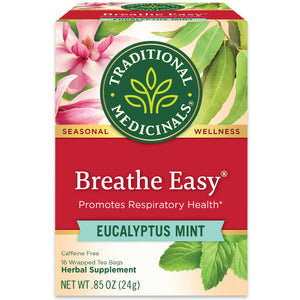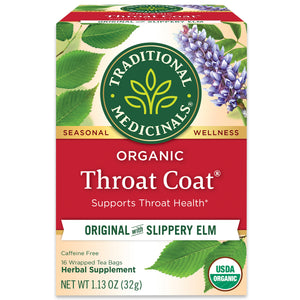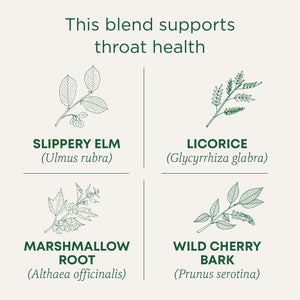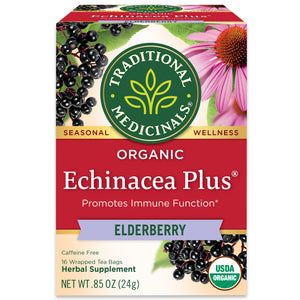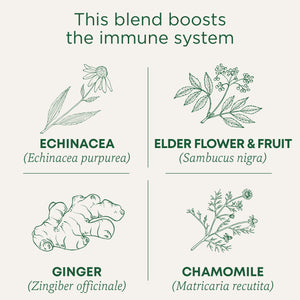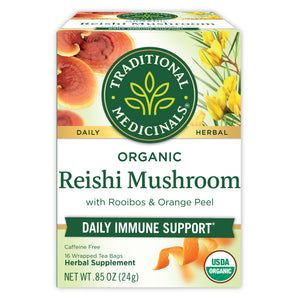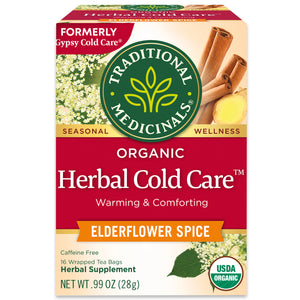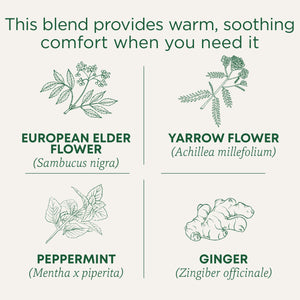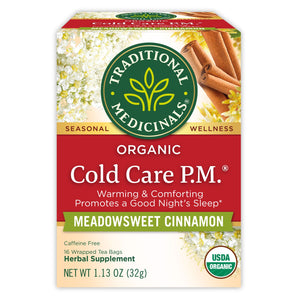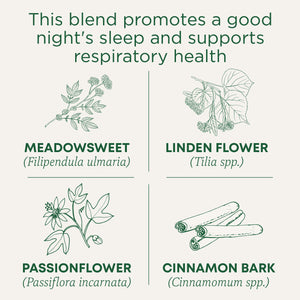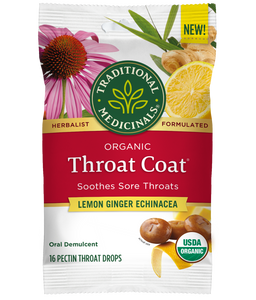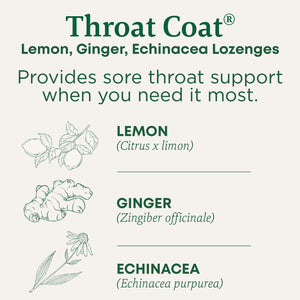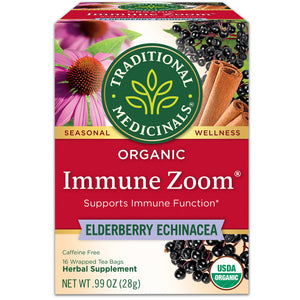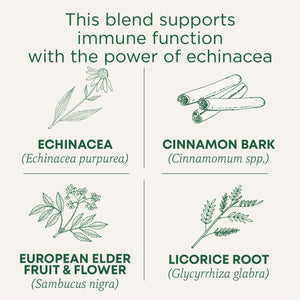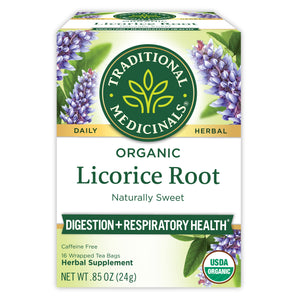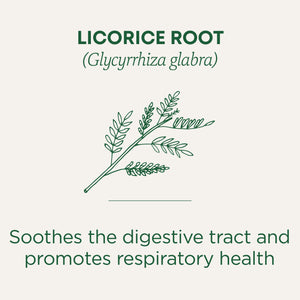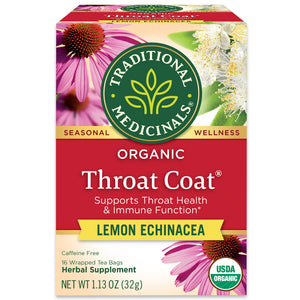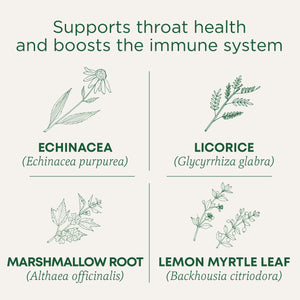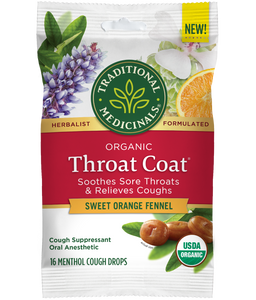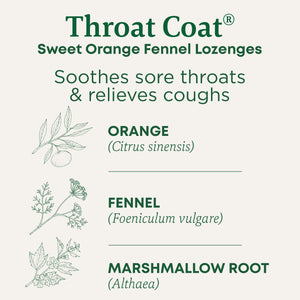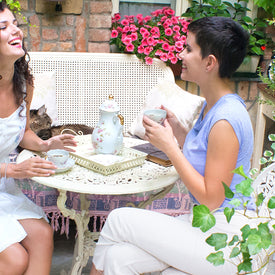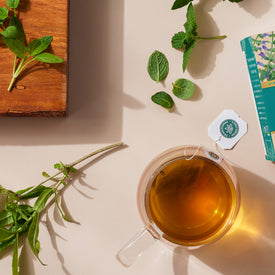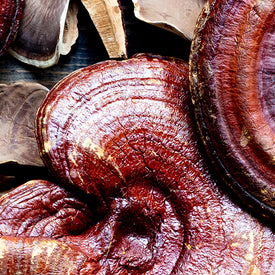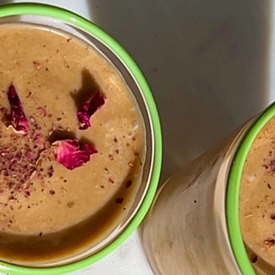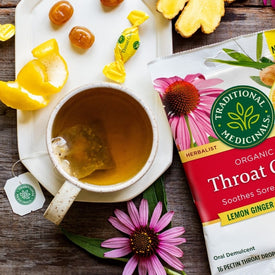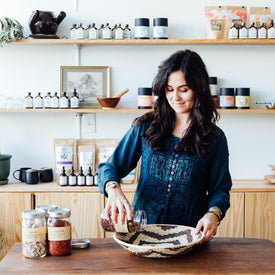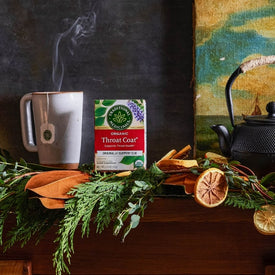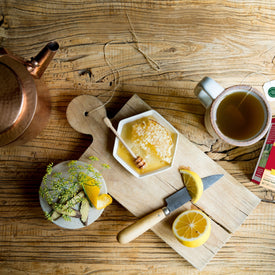Elder is one of the most accessible plants in herbalism. Hailed as “The medicine chest of the country people,” by ancient physicians and botanists, elder flower and its berries are as prevalent in remedies today as they were in ancient times. Traditionally, herbalists use the berries to support immune system health, and our herbalists have tapped into their immune-boosting benefits to make our Echinacea Plus® Elderberry tea, lending it a deep purple hue.*
There are nine species of temperate and subtropical shrubs and small trees which commonly go by the name elder or elderberry. We use Sambucus nigra, a species native to Europe, Northern Africa and Western and Central Asia. The plant takes its name from the Anglo-Saxon word æld, meaning “fire,” since blowing through the hollow stems of elder’s young branches helped to fan flames. Elder has a long history of traditional use among Native Americans and European herbalists, lending itself to much folklore. In Old World tradition, elder served as a great symbol of protection; people planted it around houses or hung it above windows to keep witches at bay and to watch over the plants in the garden.
Healers have used elder in many different ways throughout history. The glossy, dark purple berries have immune-supporting properties and are often combined with echinacea as an immune-stimulating herbal power team. Aside from its many medicinal powers, elder has also found its way into the kitchen, used for centuries for making preserves, wines, winter cordials and adding flavor and color to other concoctions. In fact, ripe elderberries were once known as “Englishman’s grape” and have been used for centuries to make the famous elderberry wine.
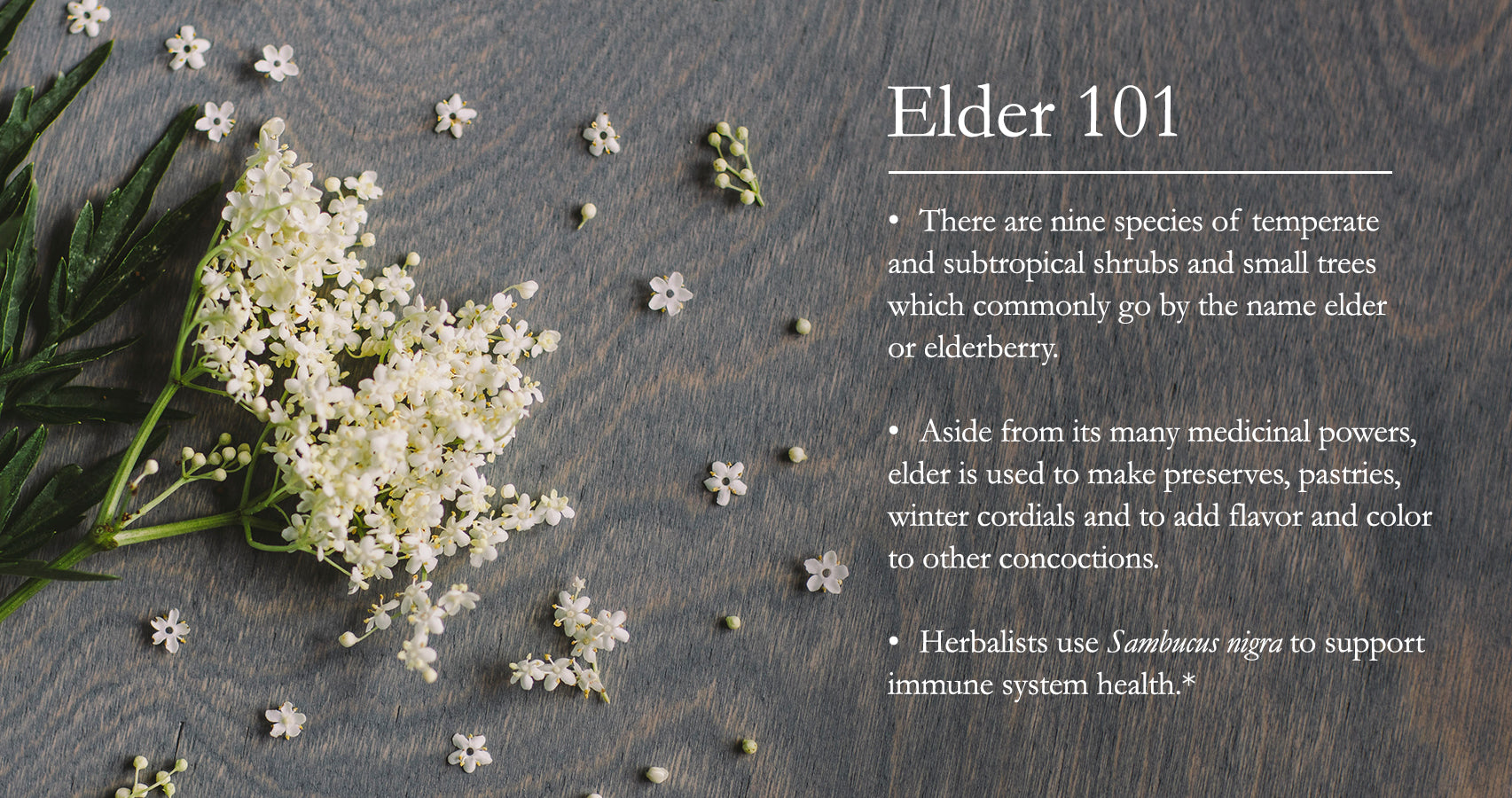
Elderberry and elderflower are among Europe’s most esteemed remedies during the colder months, and their popularity has only increased over the centuries. In recent years, natural health products made from extracts, juices and syrups of European elder have popped up on grocery and pharmacy shelves across North America and can be found all year long. Elderflower has even made it into cocktails, where bartenders feature its elegant and floral liqueur as the latest in trendy bar ingredients. Needless to say, elderberry’s deliciously tart and sweet flavor makes it easy to forget you’re taking herbal medicine.
From boosting our immune system all year round, to making some of the most delicious wines, jams, jellies and pies, it’s no wonder elder is such a beloved plant ally. Elder is known as “The medicine chest of the country people,” for good reason. When it comes to seasonal wellness, this tasty, tried-and-true herbal remedy has helped people sidestep the pitfalls of winter for centuries. Symbolically and literally, an herb of protection is an herbal ally worth having.


